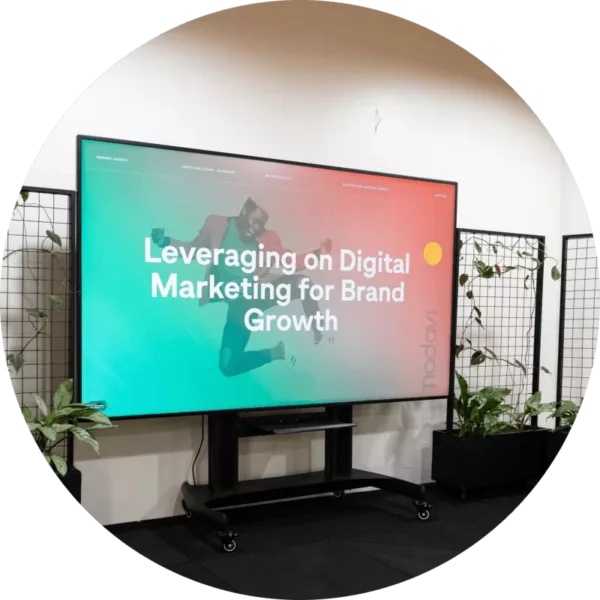Table of Contents
Dynamic Relationships Between SEO and Content Writing
When attempting to grow your business or brand, improving quality traffic to your website will impact sales. As you build your content marketing strategy, prioritizing integrating Search Engine Optimization can help you bolster your organization’s revenue. Learning the fantastic relationship between SEO and content marketing can help any organization build an effective digital marketing strategy.
In this article, we’ll learn about SEO and content marketing and how they can help your brand boost revenues and enhance conversions for your business.
What is Search Engine Optimization?
Search Engine Optimization, or SEO, refers to a set of practices designed to enhance the positioning and appearance of web pages when an organic search result is run. Search engine giants like Bing and Google will leverage bots that scan sites to collect as much information as possible related to the topic of the content, as well as the content of any websites linked out to, to determine a theme.
By emphasizing improving an SEO strategy, search engines will regulate that one webpage is more relevant to a search than another. This relevant page will then get ranked higher on the SERPs, potentially resulting in an enhanced likelihood for viewers to one site over another.
What is Content Marketing?
Conversely, content marketing is a type of marketing that emphasizes creating and sharing online content incorporating blogs, videos, or social media posts. One primary aspect of content marketing is that it’s designed to stir interest in a product, not actually to sell it.
Regarding sales cycles, content marketing takes a longer-term angle by prioritizing allowing organizations to create relationships with potential consumers over months or even years. After you’ve built rapport with your consumers or potential customers, viewers of the content are far more likely to invest in the product or service itself.
How Does SEO Impact Content Marketing?
While Search Engine Optimization and content marketing can seem similar on the surface, they are different. Beyond this, both work together to bolster a company’s marketing strategy. It’s the simplest to think of content marketing as the high-level distribution of a company’s content, with SEO referring to how that content is presented and organized.
For instance, if a lawyer is looking to improve website SEO, they need to start by creating a content marketing strategy. This could decide that informational blogs will be posted to the law firm’s site. Once this content marketing strategy has been finalized, SEO comes into the picture. The following questions should be answered as a result:
-
How will the blog posts be presented appealingly and compellingly to a reader?
-
How many subsections will each blog have?
-
What will external authoritative resources be leveraged to support claims in the blog posts?
-
What should relevant keywords be included in the blog to enhance conversions?
A site with a content marketing strategy and no SEO might have a blog section with lengthy and uncatchy titles and no broken-out paragraphs or use of bullets on each post. Search engines will look at this blog section and be less likely to promote the page because of the lack of organizational structure.
Alternatively, a site with a content marketing and SEO strategy will have a visually appealing blog section, short, compelling, relevant blog titles, and headings and subheadings with every article or blog. Search engines are far more likely to rank the webpage with optimized content and titles higher among search results than the former page described.
Ways To Improve Your Content Marketing and SEO
Understanding what content marketing and SEO are is only half the battle. The second half is all about improving the overall strategy of both. Here are the five tips that can be used to improve organic traffic to any webpage while offering an undivided focus on your product or service:
1- Focus on On-Page SEO
When considering enhancing your SEO strategy, there are two main aspects: on-page and off-page SEO. The primary distinction between on-page and off-page SEO is that off-page refers to social media content or public Relations (PR), and on-page refers to content that can be done on a webpage or the own website.
For instance, creating website content, designing relevant meta titles and descriptions, adding headers, and integrating feature snippets are primary of on-page SEO. Off-page SEO may look like link building, guest posting, and external content marketing. Accurate optimization of SEO requires optimizing on-page content and not just external marketing.
2- Advertise on Various Platforms
Beyond on-page SEO, an effective marketing strategy will include using multiple platforms to market valuable and well-optimized content. Social media marketing has grown exponentially recently and is a fantastic choice for creating aesthetically and SEO-optimized snippets. Leverage platforms such as YouTube to create videos and other content that stand out from any other content on your website.
3- Utilize High Authority Links
When establishing your company in whatever industry you may be in, it’s essential to establish yourself as a reliable and authoritative source of information. By adding backlinks to verifiable sites, an organization can enhance its site’s authority by showing that they get relevant information from a reliable place.
4- Research Real-Time User Behaviour
Understanding what users (potential customers) are viewing most on your website with a heatmap can help any company determine where most of its success is coming from. For instance, if a specific aspect of a blog draws the most traffic, the layout of that blog may impact the traffic. Leverage real-time tracking software to see what resonates most with your users.
5- Leverage Keywords
Finally, keywords are integral to an effective and sustainable SEO and content marketing strategy. Integrate keywords naturally throughout your content copy related to the overall theme or title so that search engines can better understand who the target audience or users may be. Aim to include high-priority keywords in at least the introduction and conclusion, then occasionally throughout the content.
Conclusion
Enhancing the organic traffic on your site is about so much more than deciding what content you want to market. Every piece of content must be optimized to be relevant to the overall theme, easy to view, and authoritative. By integrating robust search engine optimization with an effective content marketing strategy, any company can take massive steps to improve its overall digital existence and boost sales.







